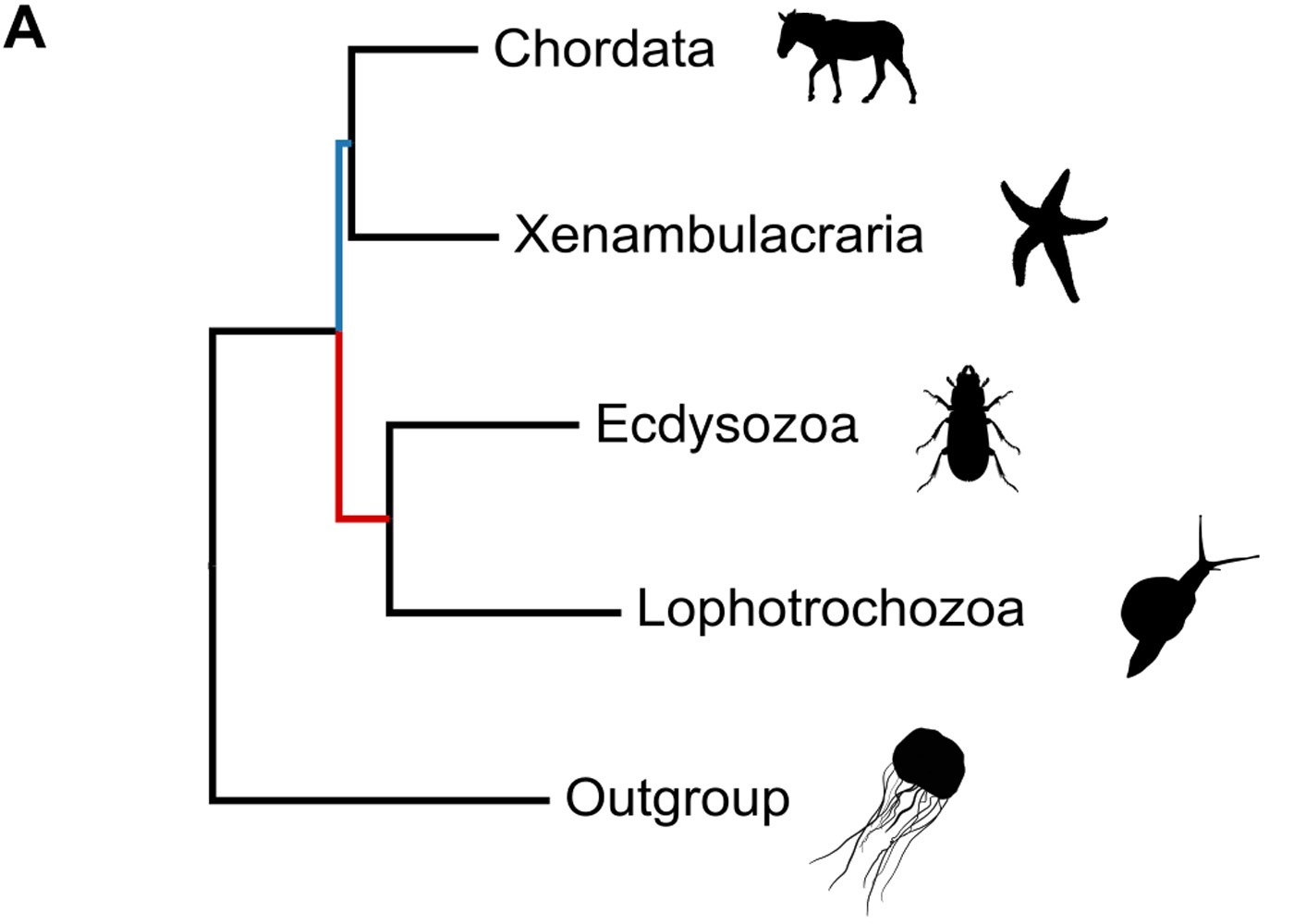A research article with participation from IGNITE researchers Paschalis Natsidis and Prof. Max Telford, titled “Lack of support for Deuterostomia prompts reinterpretation of the first Bilateria” was published in the open access multidisciplinary journal Science Advances. It presents findings which have important implications for the understanding of early animal evolution.
The authors of the article study the phylogenetics of Bilateria and compare support for Protostomia and Deuterostomia using multiple, independent phylogenomic datasets. As expected, Protostomia is always strongly supported, especially by longer and higher-quality genes. Support for Deuterostomia, however, is always equivocal and barely higher than support for paraphyletic alternatives.
The authors of the article study the phylogenetics of Bilateria and compare support for Protostomia and Deuterostomia using multiple, independent phylogenomic datasets. As expected, Protostomia is always strongly supported, especially by longer and higher-quality genes. Support for Deuterostomia, however, is always equivocal and barely higher than support for paraphyletic alternatives.

Figure A: Canonical tree showing relationships between major metazoan clades. The Bilateria consists of two branches: Protostomia (red, Lophotrochozoa and Ecdysozoa) and Deuterostomia (blue, Chordata and Xenambulacraria).
Simulation experiments show that support for Deuterostomia could be explained by systematic error. The branch between bilaterian and deuterostome common ancestors is, at best, very short, supporting the idea that the bilaterian ancestor may have been deuterostome-like.
You can read the full publication here.